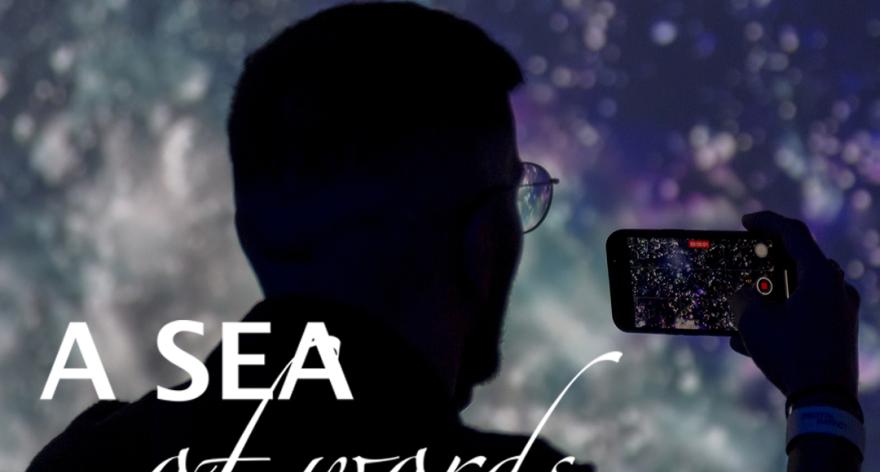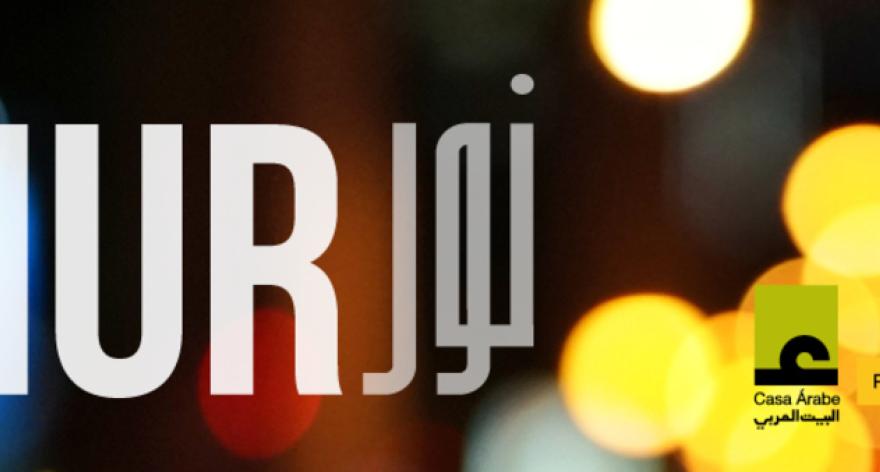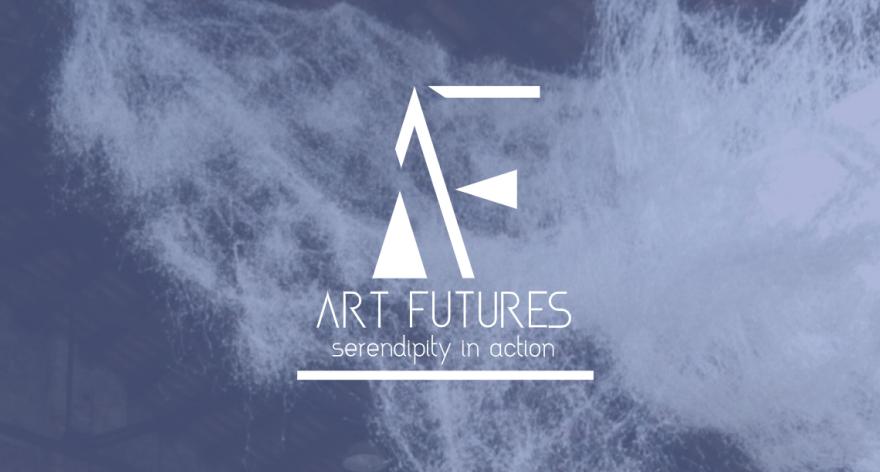Observatorio de los Contenidos Audiovisuales (OCA)
Facultad de Ciencias Sociales. Campus Miguel de Unamuno. Edificio F.E.S. Paseo de Francisco Tomás y Valiente, s/n. 37007. Salamanca. España
37007 Salamanca
Spain
- Research
The Observatory OF Audiovisual Content (OCA) focuses its activity on the empirical study and analysis of the contents, uses, processes and effects of media communication: press, television, radio, cinema, information technologies and new interactive media (social networks, video games, etc.).
Regarding their main lines of research, they focus on:
Media processes and effects: cross-cultural research on content, processes, uses and media effects. Evaluation studies of media interventions.
Communication and education: design and implementation of applied studies of content analysis, image analysis in the Media and Strategic Frame Analysis.
Analysis of media messages: pre-test studies of products and media messages.
Consumption and use of media: design and conduct of research on consumption, uses, reception processes and effects of media communication.
Projects
2020-2022. Preventing Hate Against Refugees and Migrants. Financing Entity: European Commision. Call REC-RRAC-RACI-AG-2019. Ref: JUST/REC-875219. 362,131.85 euros. PI: Dr. Carlos Arcila
2019-2020. Development and Evaluation of a hate speech detector online in Spanish. Financing Entity: Fundación General de la Universidad de Salamanca. Plan TCUE 2018-2020. Referencia: PC-TCUE18- 20_016. Cuantía del proyecto: 7.000 euros. PI: Dr. Carlos Arcila Calderón. www.ocausal.es/proyecto-stop-hate/
2019-2023. Enhanced migration measures from a multidimensional perspective. Financing Entity: Comisión Europea. Horizon 2020 Framework Programme. Call H2020-SC6-MIGRATION-2019. Referencia: H2020-SC6-870661. 2,992,035.00 euros. PI: Prof. Dr. Ides Nicaise (KU Leuven)
2016-2020. Narrative tools to reduce prejudice. Effects of similarity, imagined contact, empathy and narrative voice. Financing Entity: Spanish Ministry of Science, Innovation and Universities. 49,126 euros. PI: Dr. Juan José Igartua Perosanz.
2018-2020. Narrative tools for smoking prevention in adults. Effects of similarity with the audience and narrative voice. Financing Entity: Consejería de Educación, Junta de Castilla y León, Spain. 12,000 euros. PI: Dr. Juan José Igartua Perosanz.
2019-2020. Data Science in Spain: knowledge and public perception of big data and artificial intelligence. Financing Entity: Spanish Foundation for Science and Technology (FECYT) in the Call for grants for the promotion of scientific, technological and innovation culture 2019-2020. 25,000 euros. PI: Dr. D. Carlos Arcila Calderón. www.ocausal.es/datasciencespain/
Patents
AutoCop: Software to run supervised sentiment analysis at large scale and with streaming analytics. Intellectual property registered in 2017 by the University of Salamanca [# 00/2017/3204] under the next authorship: Carlos Arcila Calderón, Félix Ortega, Francisco Amores, Sofía Trullenque, Mateo Álvarez and Javier Ramírez.
Online courses of a methodological nature:
2017. Mediation, moderation and analysis of moderate mediation with bootstrapping techniques. Introduction to the handling of the PROCESS macro for SPSS. IP. 9 videos 3,551 views. YouTube: https://www.youtube.com/playlist?list=PL0l_USEzgyRseeeIRh7APuhw2C_l6PT4n
Publicaciones recientes (selección):
Igartua, J. J., Wojcieszak, M., & Kim, N. (2019). How the interplay of imagined contact and first-person narratives improves attitudes toward stigmatized immigrants. A conditional process model. European Journal of Social Psychology, 49(2), 385-397.
Igartua, J. J., & Fiuza, D. (2018). Persuading with narratives against gender violence. Effect of similarity with the protagonist on identification and risk-perception. Palabra Clave, 21(2), 499-523.
Rodríguez-de-Dios, I., van Oosten, J. M. F., e Igartua, J. J. (2018). A study of the relationship between parental mediation and adolescents’ digital skills, online risks and online opportunities. Computers in Human Behavior, 82, 186-198.
Arcila, C., Barranquero, A. & García, E. (2018). From Media to Buen Vivir: Latin American Approaches to Indigenous Communication. Communication Theory, 28(2), 180–201.
Caffarel-Serra, C, Ortega-Mohedano, F., & Gaitán-Moya, J.A. (2018) La investigación en comunicación en España: Debilidades, amenazas, fortaliezas y oportunidades. Comunicar, 26, 61-70.
Arcila, C., Ortega, F., Jiménez, J., & Trulleque, S. (2017). Supervised sentiment analysis of political messages in Spanish: real-time classification of tweets based on machine learning. El Profesional de la Información, 26(5), 973-982.
Igartua, J. J., & Frutos, F. J. (2017). Enhancing attitudes toward stigmatized groups with movies: mediating and moderating processes of narrative persuasion. International Journal of Communication, 11, 158–177.
Igartua, J. J., Wojcieszak, M., Cachón-Ramón, D., & Guerrero-Martín, I. (2017). “If it hooks you, share it on social networks”. Joint effects of character similarity and imagined contact on the intention to share a short narrative in favor of immigration. Revista Latina de Comunicación Social, 72, 1085-1106.
Igartua, J. J., & Vega, J. (2016). Identification with characters, elaboration, and counterarguing in entertainment-education interventions through audiovisual fiction. Journal of Health Communication, 21(3), 293-300.
Igartua, J. J., & Rodríguez-de-Dios, I. (2016). Motivational correlates of use and satisfaction with Facebook. Cuadernos Info, 38, 107-119.
Soto-Sanfiel, M. T., & Igartua, J. J. (2016). Cultural proximity and interactivity in the processes of narrative reception. International Journal of Arts and Technology, 9(2), 87-107.
Igartua, J. J., & Barrios, I. M. (2013). Hedonic and eudaimonic motives for watching feature films. Validation of the Spanish version of Oliver & Raney’s scale. Communications. The European Journal of Communication Research, 38(4), 411-431.
Resources:
The Observatory of Audiovisual Content (OCA) has its own physical space and technological equipment for the development of the research of its members and doctoral students.
As for the techniques and methodologies used in the work of the group and the usual management of the researchers, support of the following is provided:
• Experimental research in studies on processes and effects of media messages (Media Lab). Online experiments with QUALTRICS.
• Quantitative research, through questionnaire, on uses, processes and media effects.
• Content analysis of media messages.
• Computerized Content Analysis (CATA). LIWIC (Linguistic Inquiry and Word Count) program.
• Qualitative analysis of media messages (narrative and discourse analysis).
• Qualitative methodology (focus groups and open interviews in depth) for the analysis of media uses, processes and effects.
• Techniques for statistical analysis of univariate, bivariate and multivariate data. Programs SPSS (Statistical Package for the Social Sciences), R, JASP, MPlus and AMOS.
• Big Data Analysis, development and processing of computerized algorithms.
• Cross-sectional studies of traditional and booming media (Internet, Videogames, Social Networks, Apps ...).
Migration to Europe has grown in the last years in scale and complexity. The so called ‘refugee crisis’ and the migratory pressure is particularly acute in southern EU countries as the main entrance to the EU.
Currently, the Observatory for Audiovisual Contents is immersed in various projects based on the analysis and study of hate speech towards vulnerable audiences and the planning of future intervention phases. Some of the main challenges and objectives of these large-scale projects will add value to the network both in the country and abroad:
“Preventing Hate Against Refugees and Migrants” (PHARM):
The main goal of PHARM is to monitor and model hate speech against refugees and migrants in Greece, Italy and Spain in order to predict and combat hate crime and also counter its effects using cutting-edge techniques, such as data journalism and narrative persuasion.
The activities include: Implementation of a conceptual and methodological common framework for large-scale analysis and detection of hate speech; Implementation and evaluation of machine learning approaches to model and predict hate crimes against refugees and migrants based on hate speech features; Survey journalists to understand how they inform and raise awareness about hate speech and how they can help building and disseminating counter-narratives based in data-driven news pieces; Creation, evaluation and dissemination of counter-narrative fictional stories adapted to different characteristics of citizens using large-scale narrative persuasion.
PHARM will benefit ~500.000 individuals in refugee-like situation, ~1.300 journalists, 750 citizens, 7 journalist associations, generic migrants, future asylum seekers and the broad general public who will indirectly benefit from countering strategies. The main result will be the identification and reduction of online hate speech, and the prediction of potential hate crimes.
“Enhanced migration measures from a multidimensional perspective” (HUMMINGBIRD):
HumMingBird will investigate the changing nature of the social reality and reappraise assumptions about migration and identify key uncertainties.
This Project will explore the reasons why migration predictions may not hold. Given the dominance of the economic theories explaining mainly voluntary migrations, estimating the previous migration flows for the past years to check the robustness of the models will allow us to detect the shortcomings of the (quantitative) scenarios (in particular gaps in explaining forced migration) that are based on the migration theories and existing migration data.
The HumMingBird project’s concept of migration territory of Europe is not limited to the area within European borders, we also draw attention to the migration hubs of Europe that have been the main gates to Europe within or out of the EU borders. Working in the hubs will allow us listening and reflecting the perspective of the migrants en route and also gaining deeper knowledge on migration propensity, transnational networks, the impact of corruption.
HumMingBird will listen to the migrants on the way to understand the root causes of migration and aims to bring in the human aspect by allowing the voices of individuals to shine through for a better understanding of their reasons to migrate, experiences and migratory projections. We will focus on the contexts and considerations that shape migrants’ decisions to undertake cross-border travel. Moreover, the project findings will broaden and deepen the EU’s viewpoint on the nexus between the policies and migration flows through the analyses of the impact of migration, welfare policies and public social security systems and most especially by dint of the analysis of the impact of the policies on migration.
“Narrative tools to reduce prejudice. Effects of similarity, imagined contact, empathy and narrative voice” (HENAR):
This Project focuses on two of the main research lines of the Observatory for Audiovisual Contents, namely “Media, immigration and prejudice”, and “Narrative persuasion”. The project Chief Researcher (IP), Juan José Igartua, is Professor of Media Psychology, and heads the OCA since its creation in 2005. Researcher Magdalena Wojcieszak, Professor of at the University of California Davis (USA) has joined the Project, since we have been working with her on these topics over the past year. OCA has secured stable funding over the last decade and, with this Project, the aim is to enhance and consolidate the international presence of the Group through research networks that have been developed through the years. As a whole, the team is composed of senior and junior researchers with a common career in research (both together and on the same fields). The project focuses on a very much current issue in our country and in the rest of the European Union: prejudice and the techniques employed to reduce it through the use of narrative formats. Thus, it links two of the main challenges in European Society, as stated by the report Spanish position on Horizon 2020, issued by the Ministry of Economy and Competitiveness of the Spanish Government: (a) Health, demographic change and wellbeing; and (b) Secure societies (integrating, inclusive and secure societies). Our project aims to press on the research on narrative persuasion processes; i.e. the knowledge on mechanisms that explain how narratives impact on attitudes and beliefs. Particularly, our goal is to provide causal evidence on the variables that influence the identification with characters and, indirectly, they impact on attitudes and beliefs related to a narrative topic (in our case, narratives designed to reduce prejudice toward immigrants). Furthermore, the project connects two research lines that, up to date, have been independent: research on narrative persuasion and psycho-social research on imagined contact, and the techniques employed to reduce prejudice against socially stigmatized groups. All this will affect and improve the design of campaigns against racism and xenophobia in the European Union. In other words, the knowledge of basic processes of narrative persuasion will allow the design of more efficient strategies based on empiric evidence. Three experimental researches has been carried out in two contexts where immigration is a relevant topic in public agendas: Spain and the Netherlands.
It is a great opportunity to be part of a national network that in turn forms a large collaborative network with lines of work in common for dialogue and intercultural protection. Each of the national networks brings a lot of value to all partners in terms of collaborations, support, shared knowledge, cultural relations and sustainable development.
The support of a network of these characteristics is of great value to research groups like us, which develop large-scale projects and can also contribute knowledge and work for future progress.


